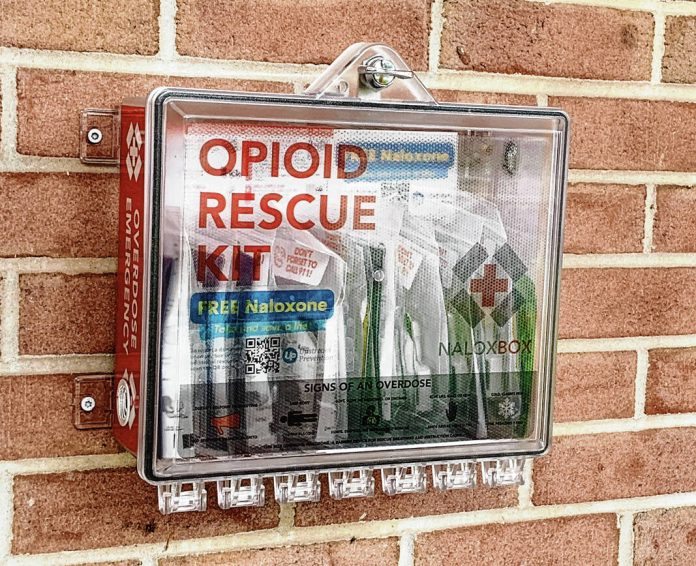County organizations and residents will soon be able to apply for opioid remediation grant funding via a new advisory board.
The Franklin City Council was the first in the county to approve an interlocal agreement with Johnson County and other entities to establish an advisory board for the Johnson County Opioid Remediation Grant Program. The board will screen all grant applications for eligibility, evaluate and score them, and make recommendations to the county for awarding opioid remediation funding.
Grant funds will be awarded bi-annually or however often deemed by the board, according to council documents.
The board is an effort that local communities came up with to pool money received in opioid settlements for the good of the whole county. With many communities receiving small amounts of money from the settlement, coming together will make a bigger difference, officials say.
Greenwood is the only Johnson County community to receive opioid settlement funds to not participate in the board. The city plans to use its funds in other ways, with the first idea being to start a mobile integrated health unit.
The state is set to receive approximately $925 million over 18 years as part of several opioid litigation settlements. Johnson County, alongside other local municipalities, is making funding opportunities available through the opioid remediation grant program “to support evidence-based prevention, treatment, recovery, harm reduction, behavioral health workforce, enforcement, jail treatment, recovery residences and other services and initiatives.”
The county is set up to receive over $5 million throughout the years of settlement disbursement, while Franklin is set to receive over $300,000 throughout the settlement disbursement and towns will receive smaller amounts.
The board will be comprised of two county representatives and two Franklin representatives will be on the board, as well as one representative from Bargersville, Whiteland, New Whiteland, Edinburgh, Trafalgar and Prince’s Lakes. Each member will serve for two year terms.
The theory behind pooling the settlement money is that opioid abuse goes beyond city and town limits, said Lynn Gray, Franklin city attorney.
“Given the collaborative nature of what we hope the program will look like, we did want to include them as part of the process and give them, for lack of a better word, a seat at the table,” Gray said.
The need is present in Prince’s Lakes and the town could not do a lot with the small funding it has received on its own, said Greg Nelson, town council president.
There is a need for opioid education, prevention and programming not just in New Whiteland but everywhere, said John Perrin, town council president.
“From past history, I think it is everywhere. It is a crisis. People you wouldn’t even realize are struggling with that,” Perrin said. “So yes, if we can educate, especially the younger people, to kind of be observant or be on the lookout or (understand) what that could create for them in the future, then yeah, absolutely, I think it’s something that we need to be teaching.”
Even though there were fewer overdose deaths last year, the problem persists, said Jason Ramey, Trafalgar’s town council president and a Bargersville firefighter. Communities still need the funding for education and prevention.
“Overall, if it’s an opportunity to utilize some funds to try to help people that are dealing with opioid addiction and things like that, kind of clean up some of these issues in our community, then I think it’s great,” Ramey said. “I want to try to get people involved and especially people that have a little bit of knowledge and background hopefully in these issues to help guide us for those of us that don’t.”
The Johnson County Health Department originally worked to get officials together to pool the funds, but the department is no longer a part of the plans because officials want to be able to apply for opioid remediation grant funding, said Betsy Swearingen, public health department director.
Swearingen believes the board and the grants it gives out will help move the needle.
“It’s huge, there’s an immense need for it in Johnson County. Our … (substance) use is more than we want, we want to see un-use, so therefore prevention is the best possible tool,” she said. “We want to start in every facet: young, old, people with substance-use disorder, those without (substance-use disorder), families that need support of those who are using. So it’s very much needed and the funding couldn’t come at a better time.”
Franklin City Council also agreed on Monday to transfer the $83,967.52 it has already received and the additional sum of approximately $24,171.53 to be received through 2026 to the county in support of the collaborative grant fund program. The council also appointed Jennifer Price and Todd Shuck as Franklin’s representatives on the board.
Before the board can meet for the first time or approve any grants, the interlocal agreement will have to be passed by all parties.





